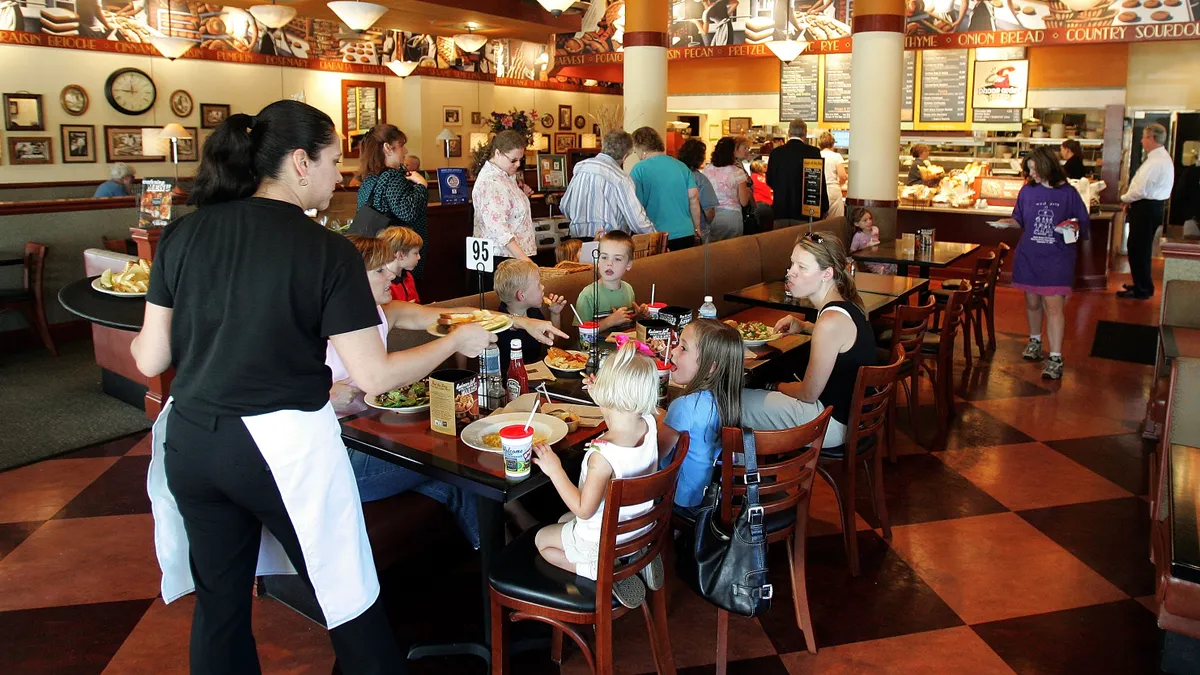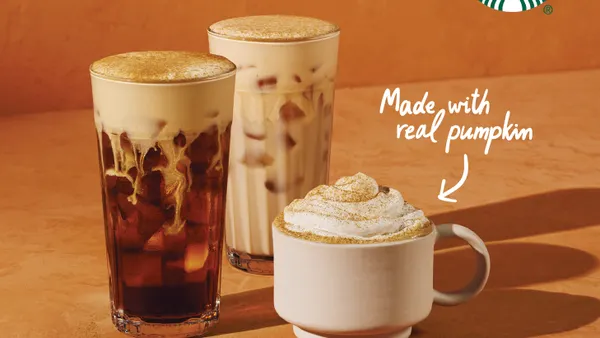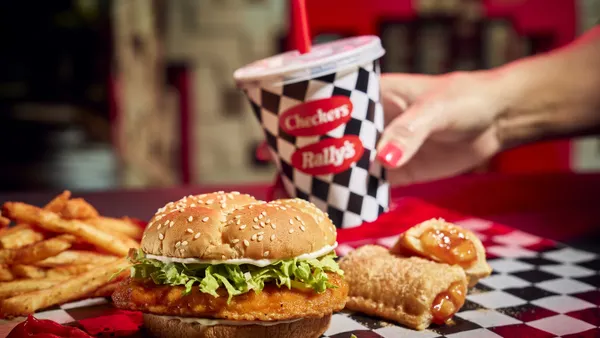Dive Brief:
- Fifty-eight percent of consumers report they have increased the amount they typically tip servers and delivery drivers during the pandemic, according to a survey of 1,000 U.S. consumers conducted by Popmenu. Thirty percent of customers say they tip the same as they did pre-pandemic.
- Fifty-six percent of consumers say they tip servers 20% or more and one-fifth of consumers tip 25% or more. Thirty-eight percent say they tip delivery drivers 20% or more, while 61% say they typically tip drivers at least 15%.
- Restaurants report similar diner behavior. Within a year of offering tipping options through its app, Sonic brought in nearly $12 million in tips. Burgerville says tipping has lifted hourly wages by an average of $2, and it included tipping in its contract with the Industrial Workers of the World.
Dive Insight:
As the restaurant industry took a major hit from restrictions and closures, consumers behavior shifted to support favorite eateries, with spending on gift cards and delivery by a restaurant rather than a third-party aggregator both rising.
Tipping emerged as one way for patrons to provide direct support to works, as nearly 90% of adults feared for the future of local businesses. Increased tipping may also be a response to the essential worker classification thrust upon restaurant workers throughout the past year and a half as they faced workplace COVID-19 exposure and increased risk of mortality.
"As discussions around compensation structure for restaurant workers continue throughout the industry, this [trend] is good news for a profession that is largely dependent upon the generosity of guests in recognition of great food and service," Brendan Sweeney, CEO and co-founder of Popmenu, said in a statement.
This trend is expected to continue through the holidays. According to a poll by CreditCards.com, most adults plan to tip even more this holiday season. Of the 45% of adults who plan to tip service providers more, 27% said they would specifically target waitstaff with their generosity.
Perhaps a bigger question now is whether a meaningful increase in tipping could help with retention in an industry battered by a mass worker exodus. A 2016 study from the Journal of Foodservice Business Research found that tipping does not substantially help attract and retain more service-oriented workers, but that research was conducted before the pandemic changed the labor market. Some workers and operators have argued the tipped model should be abandoned all together in favor of higher wages. Diners' recent generosity isn't likely to solve this debate on its own.














